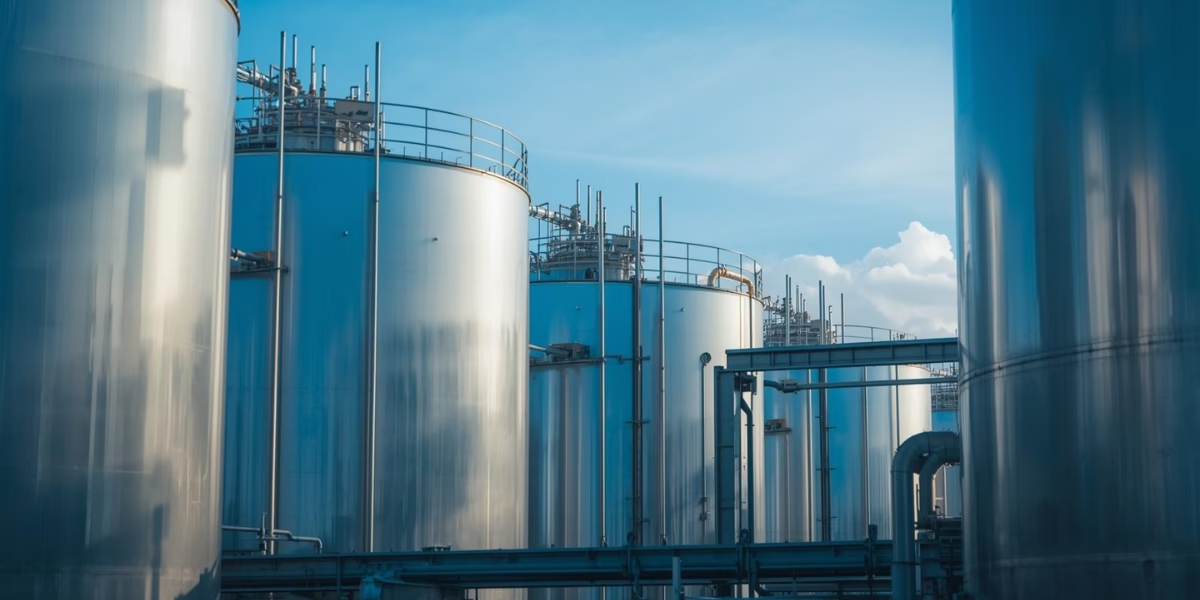In chemical industries, storage tanks and process equipment face constant exposure to harsh and reactive chemicals. Without proper protection, corrosion and contamination can occur, leading to costly damage and safety hazards. That’s where resins for chemical storage tanks and equipment linings come in. These specialized resins create a robust, chemical-resistant barrier that protects the internal surfaces of tanks, reactors, and pipes from corrosion and chemical attack.
From chemical manufacturing to water treatment, resins are the unseen guardians of industrial infrastructure.
Understanding Resins for Chemical Storage Tanks and Equipment Linings
Resins are polymer-based materials that harden into durable coatings. When applied to tanks or equipment interiors, they act as a strong lining that separates the metal or composite structure from the chemicals stored inside. Different resins offer varying resistance to acids, alkalis, and solvents. The most used types include:
- Epoxy Resins: Known for excellent mechanical strength and moderate chemical resistance.
- Vinyl Ester Resins: Offer superior corrosion resistance and high thermal stability.
- Unsaturated Polyester (UPR) Resins: Cost-effective and ideal for general chemical applications.
Each type serves a specific purpose, depending on the nature of the chemical and the operating environment.
Why Industries Use Resins for Chemical Storage Tanks?
Every industrial facility handling chemicals must prevent corrosion and leakage. The use of resins for chemical storage tanks and equipment linings provides several critical advantages:
- Corrosion Protection: Prevents degradation caused by acids, alkalis, and solvents.
- Leak Prevention: Ensures that chemicals stay contained, avoiding safety hazards.
- Extended Equipment Life: Increases the operational lifespan of storage systems.
- Operational Safety: Reduces the risk of equipment failure and environmental contamination.
- Cost Efficiency: Minimizes frequent replacements and downtime.
With the right resin, industries gain both reliability and regulatory compliance in chemical handling systems.
Industrial Applications of Resins
Resins play a crucial role across a wide range of industries. Their versatility makes them suitable for diverse environments, from aggressive chemical plants to food-grade processing systems.
Chemical and Petrochemical Industry
In chemical and petrochemical plants, tanks, scrubbers, and reactors constantly store or process acids, alkalis, and solvents. Vinyl ester resins are the preferred choice due to their high resistance to aggressive chemicals. They ensure that tanks and process vessels remain structurally sound, even under extreme conditions.
Applications include:
- Acid storage tanks
- Chlorine scrubbers
- Reaction vessels
- Solvent containment pits
The ability of resins to handle continuous exposure to corrosive agents makes them indispensable in these environments.
Water and Wastewater Treatment Plants
In water treatment plants, chemicals like chlorine, sodium hypochlorite, and caustic soda are stored and handled daily. Epoxy and polyester resins provide excellent resistance to these compounds while ensuring the tanks do not leach contaminants into the water.
Applications include:
- Chlorine contact tanks
- Filter housings
- Neutralization tanks
- Chemical dosing systems
Using resins in this sector helps meet strict environmental and water quality standards.
Food and Beverage Processing
The food and beverage industry uses cleaning and sterilizing agents that can corrode equipment. Food-grade epoxy resins provide a non-toxic, smooth, and easy-to-clean surface for storage tanks and pipelines.
Applications include:
- Fermentation tanks
- Ingredient storage vessels
- CIP systems
Resins not only protect the metal structure but also maintain hygiene and prevent contamination.
Pharmaceutical and Biotech Sector
In pharmaceutical production, equipment must resist chemical sterilizers and cleaning agents. Epoxy and vinyl ester linings ensure chemical stability and cleanliness. They protect stainless-steel tanks, mixers, and reactors used in drug formulation.
Applications include:
- Mixing vessels
- Chemical preparation tanks
- Bioreactor linings
Resins maintain surface integrity while ensuring the purity of pharmaceutical ingredients.
Oil, Gas, and Refinery Applications
In refineries and oil-processing facilities, resins protect storage units from hydrocarbons and sulfur compounds. Vinyl ester and phenolic resins resist heat and chemical attack in these demanding environments.
Applications include:
- Crude oil storage tanks
- Wastewater treatment tanks
- Acid desulfurization units
Resins extend the lifespan of refinery infrastructure, making maintenance more predictable and cost-effective.
Fertilizer and Pesticide Manufacturing
In fertilizer plants, tanks often contain phosphoric acid, ammonia, or urea-based solutions. Vinyl ester resins are the top choice for these corrosive chemicals. They provide reliable linings that prevent leaks and contamination.
Applications include:
- Acid mixing tanks
- Ammonia scrubbers
- Pesticide formulation vessels
These linings maintain operational safety in environments where even small leaks can be hazardous.
Maintenance for Long-Term Protection
Even the best linings require maintenance. Regular inspection helps detect early signs of wear, cracking, or chemical damage. Cleaning with mild, non-abrasive agents preserves the lining’s smooth finish.
Timely touch-ups or recoating can extend the lifespan of resin-lined tanks and reduce the risk of leaks or contamination. A small maintenance investment prevents large-scale operational losses.
Why Resins Are A Smart Choice?
Today, resins for chemical storage tanks and equipment linings are a necessity across industrial sectors. Their ability to resist corrosion, heat, and chemical reactions makes them an essential protective material.
With the right resin type, industries can ensure:
- Longer equipment life
- Improved safety standards
- Compliance with environmental regulations
- Reduced downtime and costs
From chemical storage to water treatment, resins are the foundation of safer, more efficient industrial operations.
Concluding Thoughts:
Resins have redefined the durability and safety of industrial chemical storage. Their role in preventing corrosion, leakage, and contamination cannot be overstated. Whether it’s vinyl ester in petrochemical tanks or epoxy in water treatment units, each resin ensures strong, long-lasting protection.
For industries handling aggressive chemicals, choosing the right resin for chemical storage tanks and equipment linings isn’t just a technical decision, it is a commitment to safety, sustainability, and operational excellence.
COMPANY INFO
Website: www.crestresins.com
Phone: +91 9879233188
Email: enquiry@crestresins.com
Address: 605/A, 6th Floor, Tower D, Times Square Grand Office, Sindhubhavan Marg, Near Taj Hotel, Ahmedabad, Gujarat - 380059

